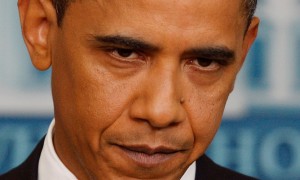Obama calls for billions in new corporate, oil company subsidies
 Veronique de Rugy, writing in today’s Washington Examiner, exposes a plan by the Obama administration to give away $140 billion in corporate subsidies, including billions to oil companies, through reauthorization of the Export-Import Bank.
Veronique de Rugy, writing in today’s Washington Examiner, exposes a plan by the Obama administration to give away $140 billion in corporate subsidies, including billions to oil companies, through reauthorization of the Export-Import Bank.
And before Republicans start claiming they oppose it, they didn’t abolish it when they held the White House and Congress. Libertarians, on the other hand, have long supported revoking the Bank’s charter and ending corporate subsidies.
Want to stop it? Start electing Libertarians.
De Rugy writes, in part:
…Ex-Im’s charter is set to expire at the end of May. The program’s cheerleaders, with the support of President Obama, have introduced a bipartisan bill in the Senate that would reauthorize it through 2015 with an unprecedented increase of the bank’s portfolio (and taxpayers’ exposure) to $140 billion from its current $100 billion limit. This increase follows a four-year expansion of the Bank’s lending from $12.6 billion in 2007 to $32.7 in 2011…
…As a senator, even Obama denounced the program as “little more than a fund for corporate welfare.” He was right. Ex-Im data shows that Bank activity is highly concentrated in certain industries — primarily aviation, gas and oil exploration and manufacturing. The aircraft industry alone benefited from 78 loans and guarantees worth $12.6 billion, or 39 percent of all transactions in 2011.
Also, 82 percent of Bank funds go to a handful of America’s largest exporters. Of the $32.7 billion in fiscal 2011 appropriations, Boeing alone benefited from 49 separate Ex-Im Bank deals worth $10.8 billion…
…Leaving aside the fact that it’s not the federal government’s role to help private companies make money, it is worth asking why private lenders haven’t realized that there is a profit opportunity in underwriting the export of American goods and services, even to high-risk countries. And the answer is: They have.
As it turns out, very few U.S. exports are supported through Ex-Im Bank activities. According to Sallie James, a Cato Institute trade policy analyst, “the $34.4 billion of U.S. exports supported by the Ex-Im Bank in FY2010 represents less than 2 percent of the $1.8 trillion worth of all U.S. goods and services exports in calendar year 2010.” The Ex-Im Bank is a mere footnote in the overall export market.
If Boeing can survive on its own — it is the largest U.S. exporter, after all — what justification is there for Ex-Im aside from a desire for corporate subsidies? Boeing isn’t alone in understanding the benefits of corporate welfare. In recent years, the number of clients lobbying Ex-Im increased from 23 in 2008 to 57 in 2011. This lobbying has worked: the number of companies whose products were purchased with borrowed funds guaranteed by the Bank has grown from 647 in 2007 to 789 in 2011 — a 22 percent increase.
Go to http://washingtonexaminer.com/opinion/op-eds/2012/04/veronique-de-rugy-congresss-chance-take-corporate-welfare/479406 to read the full column.

